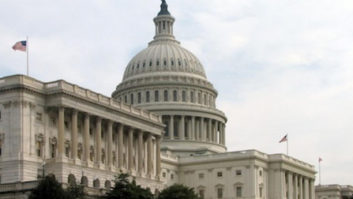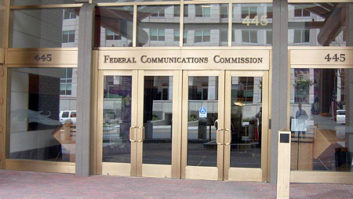Ajit Pai’s statements about Federal Communications Commission transparency are a welcome change from the way so many government and standards bodies do business.
In case you missed it, the new chairman just published two draft orders that he is circulating among his fellow commissioners as a test run for how to introduce proposed orders in the future (one involves AM revitalization, as we report elsewhere). Making the proposals public is so sensible that it’s tempting to reply here by saying “Duh” or “So what?” — except for the unfortunate fact that too many decisions in governance today are not handled this way.
“When a U.S. senator or representative introduces a bill, that legislation is soon thereafter made available to the general public,” Pai points out. “Before any debate begins about the bill, anyone, anywhere can read it. That’s not how things work at the FCC. The text of a document that the FCC votes on at its monthly meetings is sent to commissioners at least three weeks before the vote, but it isn’t released publicly until after the vote takes place. This is precisely the opposite of transparency.”
I’m a journalist (insert offensive lynching joke here), so I believe that government agencies and standards bodies should not only vote publicly but also explain what they are doing or plan to do more clearly. (Yes I’m looking at you too, NRSC.)
Pai states, “I want this commission to be as open and accessible as possible to the American people. I want us to do a better job of communicating with those we are here to serve.” That kind of comment would be banal except that he backs it up with commonsense changes like a public airing of draft orders and a requirement that commissioners vote individually in meetings.
Pai said this is a trial run but if things go well, his hope is to make it the norm to publicly release, well in advance, the text of all agenda items for monthly commission meetings. He tweeted:
If pilot goes well, I intend to make public well in advance *all* matters @FCC votes on at public meetings. Key step toward transparency.
— Ajit Pai (@AjitPai) February 2, 2017
There… was that so hard?
The National Association of Broadcasters applauded the idea of publishing drafts and pointed out that Pai is “departing from the past practice of both Republican and Democratic-controlled commissions.”
Pai is a pragmatic Republican whose approach to the job seems more like that of the former U.S. senator who heads the NAB than the man in the White House who promoted him. The chairman has said that his regulatory philosophy is based, among other things, on free markets; on rules that keep pace with technology; and on the idea that the FCC “is at its best when it proceeds on the basis of consensus; good communications policy knows no partisan affiliation.” I would call that Smithian, not Trumpian. Or call it Paian.
The chairman enjoys good standing with many broadcasters already, but obviously Pai has yet to write his legacy at this commission on major issues. Yet his early moves reinforce my impression of him as an open, intelligent, collegial man who will bring that approach to the chairmanship. It’s welcome.











